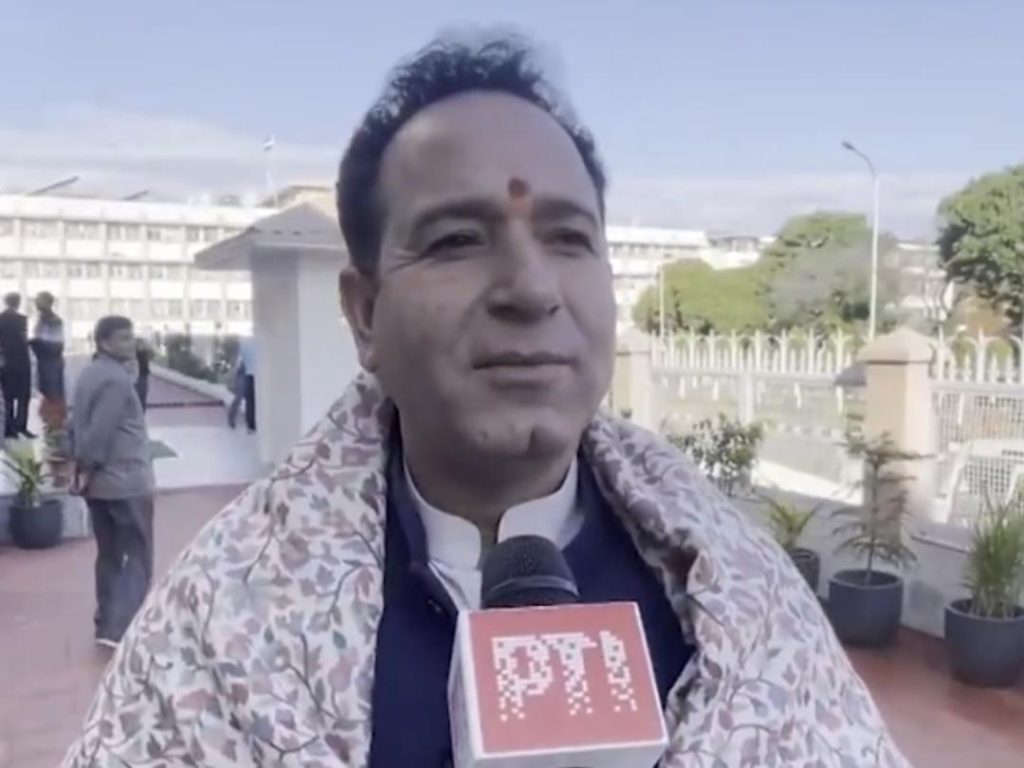
Irrelevant to Discuss Article 370 in J&K Assembly Session: BJP
The Jammu and Kashmir Assembly session has been making headlines recently, with various parties and individuals sharing their thoughts and opinions on the current political scenario in the region. However, one topic that has been gaining significant attention is the issue of Article 370, which granted special status to the state of Jammu and Kashmir. Recently, Sunil Sharma, a BJP MLA and Leader of Opposition (LoP) in the Jammu and Kashmir Assembly, made a statement that has sparked a lot of debate in the region. According to Sharma, it is “irrelevant now” to discuss Article 370 in the assembly.
Sharma’s statement came after J&K LG Manoj Sinha addressed the assembly, outlining the government’s plans and initiatives for the state. However, Sharma was disappointed with the LG’s address, saying that it did not reflect the promises made by the state’s present government. He added that “it would be a waste of time if we will have the discussion on Article 370 (in the Assembly)”.
Sharma’s statement has raised several questions and concerns among the people of Jammu and Kashmir. Some have interpreted his statement as a sign that the BJP is no longer interested in discussing the issue of Article 370, which was a key campaign promise during the last assembly elections. Others have seen it as a sign of the party’s lack of commitment to the people of Jammu and Kashmir.
However, it is important to note that Sharma’s statement was likely made in response to the LG’s address, which did not provide any new insights or solutions to the ongoing problems in the state. The LG’s speech was largely focused on the state’s economic development and infrastructure projects, but it did not address the more pressing issues of security, governance, and human rights in the region.
One of the main concerns in Jammu and Kashmir is the issue of Article 370, which was abrogated by the Centre in August 2019. The move was widely seen as a victory for the BJP, which had campaigned on a promise to repeal the article. However, since then, there has been significant unrest in the region, with many people protesting against the Centre’s decision.
The abrogation of Article 370 has also led to several controversies, including the detention of political leaders and activists, the suspension of internet and phone services, and the deployment of security forces in the region. Many people have been critical of the Centre’s handling of the situation, saying that it has led to a surge in human rights abuses and a deterioration in the region’s security situation.
In addition to the issue of Article 370, there are several other pressing concerns in Jammu and Kashmir, including the state’s economy, infrastructure, and governance. The state has been facing significant challenges in terms of economic development, with many industries struggling to survive due to the Centre’s policies and decisions. The region also lacks adequate infrastructure, including roads, bridges, and healthcare facilities.
Furthermore, the state’s governance structure is also in need of reform, with many people criticizing the Centre’s decision to appoint a LG as the head of the state. The LG’s powers are limited, and many people feel that the state is being run from Delhi rather than being governed from Srinagar.
In conclusion, Sunil Sharma’s statement that it is “irrelevant now” to discuss Article 370 in the Jammu and Kashmir Assembly session is likely a reflection of the BJP’s lack of commitment to the people of Jammu and Kashmir. The party’s handling of the issue has been widely criticized, and many people feel that it has led to a surge in human rights abuses and a deterioration in the region’s security situation.
However, it is also important to note that the issue of Article 370 is not going away anytime soon. The Centre’s decision to abrogate the article has sparked a lot of debate and controversy, and many people are still waiting for a solution to the ongoing problems in the region.
Sources:





